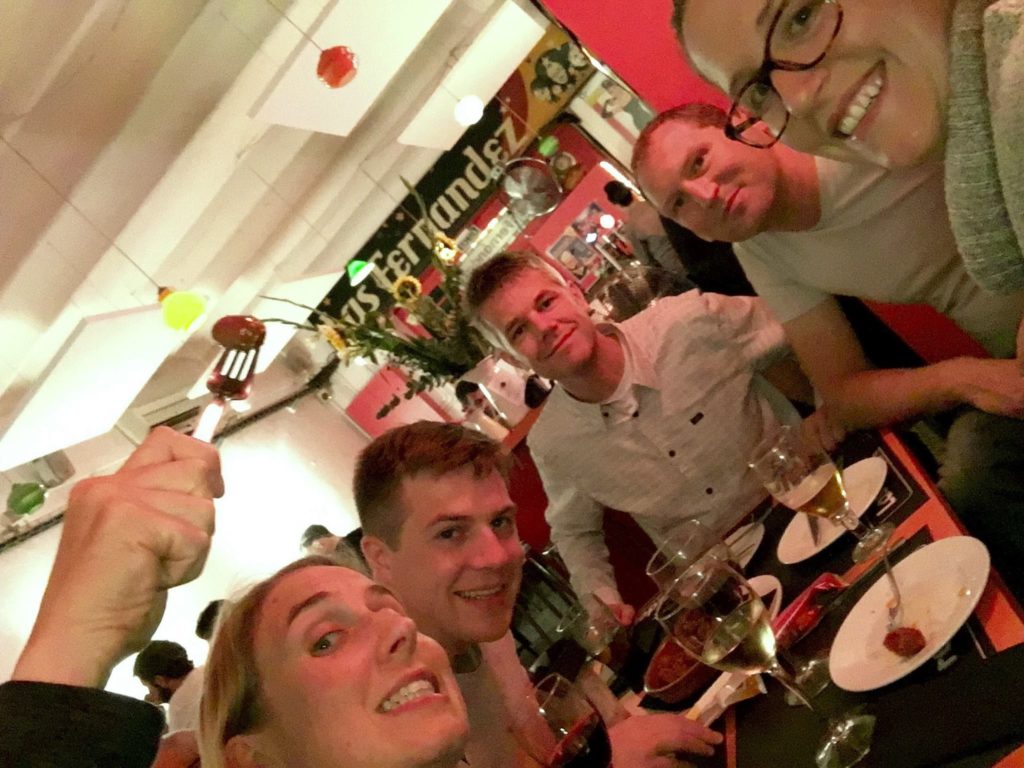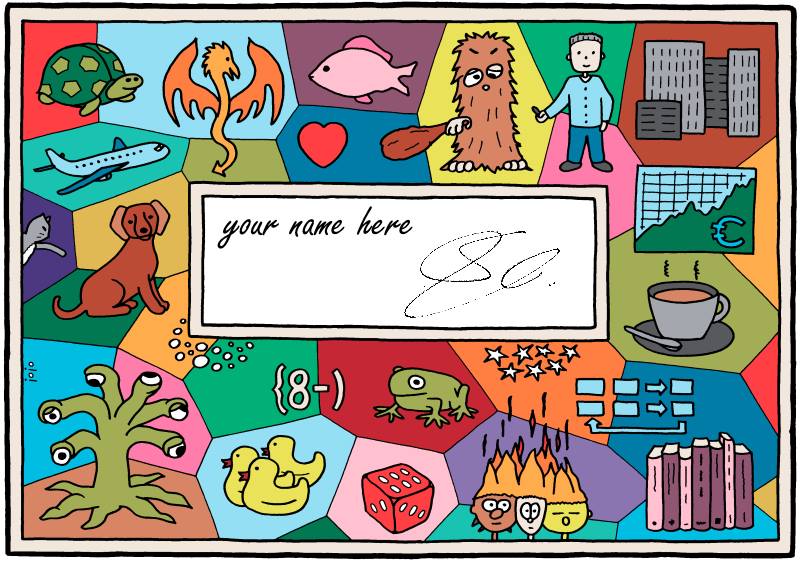Editor’s Note: This blog was written when Management 3.0’s parent company was called Happy Melly One and when we had launched an experimental project called Happy Melly, which focused on happiness at work. Today Happy Melly has been absorbed by Management 3.0, which is part of the Happy Melly Group.
by Jennifer Riggins
Jurgen Appelo is the founder of the Management 3.0 brand and the Happy Melly Group, (which encompasses several brands including ShiftUp and Agility Scales). He is a speaker, a job that takes him to the ends of the earth. He is also a writer, which, while grounding him back home in Brussels to write, then again takes him traveling in order to promote his books and management practices.
Jurgen’s newest book Managing for Happiness comes out June 27. It’s his fourth book and a John Wiley & Sons reworked update of his self-published #Workout.
If you’re a regular reader of this blog, you probably already know about Jurgen’s books and practices because we’ve certainly written a lot about them and Management 3.0, which is one of the brands. But you might not know Jurgen.
This piece isn’t about Managing for Happiness—it’s about its author. Reading a book often gives you as much insight into its author as the topic at hand. The idea of this piece is to give you an insight into who is Jurgen Appelo. By getting to know him, you’ll learn more about the book itself. (If this is true then I wonder if this article, though meant to be about Jurgen, could become more about myself.)
The piece comes in two parts: First, I’ll give you a glimpse into my own experience on the Happy Melly team and in working with Jurgen for the last year and a half, and then you can watch the video of our newest teammate Sam meeting and subsequently interviewing Jurgen for the first time.
I like to think I’ve gotten to know Jurgen fairly well. After all, Jurgen is my boss—or as close as you can get to one in a self-organizing, experimental team. Certainly Jurgen is the head of Happy Melly One BV, the legal entity behind it all and the one who makes the bank transfers for our monthly pay. Yes, “the one who signs our paychecks” sounds more eloquent, but that isn’t really accurate in this age of electronic transfers.
Actually, Jurgen isn’t legally my boss, since none of the team has signed an employment contract—instead we all choose to work together for as long as it’s mutually beneficial. You could of course then say the buck stops with Jurgen, but our bonuses are determined by peer recognition points, or Merit Money, which each team member gets an equal piece of to distribute at whim. And it’s not just pay, he also allocates our development budget; as each team member is allowed to run work experiments of up to 500€ without asking permission, only informing our teammates.
I guess, while he doesn’t feel like the traditional bosses I’ve had—certainly not the ones who work in glass-boxed offices, cubed off from us “lower” employees—Jurgen is a sort of mix between boss and peer.

If I were to define it, I’d say our working relationship is like that of a scientist and his test subjects, if the scientist were himself also a test subject. That’s what makes Managing for Happiness not your usual corporate management guide with a dry forward from some Fortune 100 CEO.
Managing for Happiness is essentially an autobiography. It’s a biography of our team. And it’s an experiment journal, sharing not only our stories, but those who have applied and adapted the Management 3.0 exercises on their own teams.
Happy Melly is an entirely experimental organization. While we never signed anything, each of us signs on to be one of Jurgen’s lab rats. In turn, we get to be a part of the future of management and teams, and we get to work to the beat of our own drums towards this goal and—since none of us are full-time, including Jurgen—our own evolving goals as freelancers and micro-businesses.
Our science experiment follows many of the practices outlined in Managing for Happiness, as well as a lot from the How to Change the World change management booklet, and quite a few tweaks from his first book Management 3.0, which was originally written for an agile software development audience. Like any best practice, we continue to test and evolve each one to make sure it indeed is still the best.
And we continue to experiment with new practices, including, particularly this year, with scaling—yes, we are growing, and Jurgen is learning to delegate. And Jurgen’s next book will be Managing for Scale.
We’re not a fully scientific experiment, but we do look for ways to measure whenever possible—a task that’s a constant experiment unto itself. The rest of the experiments’ results are more anecdotal, which you’ll see across just about every page of Managing for Happiness. We give as much value to numbers as we do to honesty and sharing.
You can learn a lot about someone from how they manage you—and how they then write about that management process. Add to that, we’re an entirely remote team and much of our communication is written, which makes it all even more memorable.
So, who exactly do I think Jurgen Appelo is?
Jurgen is unique. He’s no doubt a visionary, but he’s one of those that can actually turn that vision into action. He’s incredibly successful, and with that comes the luxury that he will only do the things which he wants to do. It also means he takes on luxuries like transcontinental flying in what our teammate Lisette calls Orgy Class (code for Business Class.)
Jurgen’s super Dutch, which means he’s tall, blond, punctual and super direct and, as you’ll probably notice in his video interview, quite deadpan and matter of fact. His sense of humor and management style takes a bit of getting used to—not because it’s difficult but it’s simply so raw, direct and honest. He’s not rude, just completely unapologetic. I think I sometimes have the urge to clash with him because in these ways we’re quite alike—seemingly born #nofilter. But what’s great is that he expects this behavior right back. I’ve never met anyone so good at both giving and receiving feedback, assuming everyone is like him and looking to improve themselves. (This makes for great experimentation and stories for his talks and books.)
Jurgen and I also share in how we set really high expectations for ourselves and others—if you say you’re going to do something, you’re expected to do it. Since we’re essentially an autonomous collective, we set our own agendas and plans, and we go ahead and accomplish them. This doesn’t mean we work completely independently, rather we just expect you to ask for help when you need it. And we expect everyone to put everything into both professional and personal context, so we understand where we’re coming from.
But beyond the extreme directness and really high expectations of others, Jurgen and I are very different. Despite his very public brand, he’s actually quiet, reserved and introverted, which makes his ability to engage an audience even more impressive. Jurgen rarely tells people what to do, rather he facilitates their self-organization, even in his style of parenting.
Jurgen’s a coffee addict. Nix that, he’s a total coffee snob.
And he just loves his mom, which says a lot about anyone—she’s the lady who had a lovely hat and a full-page color photo for the last book’s dedication.
He’s an excellent yet reluctant artist. You see his bright, creative, cartoonish take on management throughout his full-color landscape book.

Jurgen is also an avid reader (maybe book addict?), devouring management texts (which he quotes profusely throughout his books) and fantasy novels by the hundreds, as show in his extremely active GoodReads account.
You could say he’s a control freak (aren’t we all?) but that also suits his hectic life juggling so many projects. I probably have never met anyone so self-disciplined with the ability to plan and timebox his hours and days. It’s probably the secret to his success.
And Jurgen will do anything for the people he cares about, professionally and not. But I wouldn’t want to cross him and break that trust.
So, did I pique your interest? Does it make you want to learn more about Jurgen and our team? Does it make you want to learn about our management experiments and best practices? Does it make you want to experiment on your own team?

